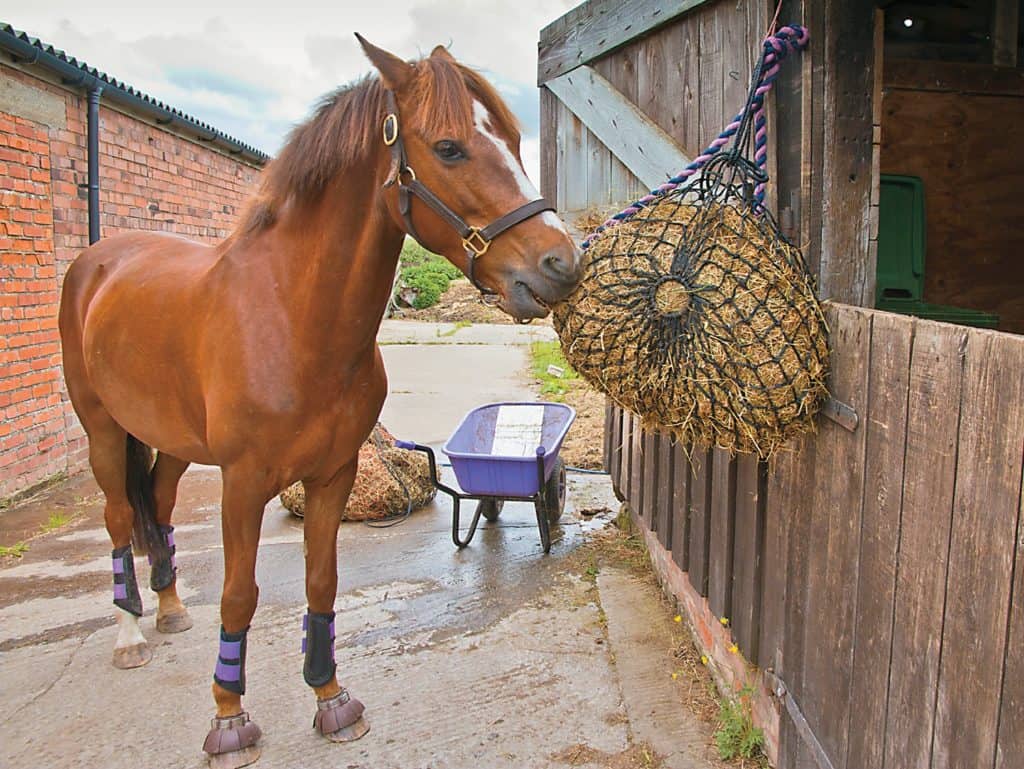
10 Low-Carb Diet Resources on TheHorse.com
We’ve compiled some of our best resources on these diets and what horses might benefit from them most. Sponsored by Hygain.

We’ve compiled some of our best resources on these diets and what horses might benefit from them most. Sponsored by Hygain.

Learn what makes managing ponies special—from their critical need for nutritional supervision to their often feisty personalities.

Learn about the steps you can take to reduce the number of asthma-causing airborne particulates in your horse’s barn.

Equine nutritionist Dr. Clair Thunes offers tips on how to safely soak hay for horses.

Researchers found successful recovery from starvation improved with each full-point increase in condition on the nine-point body condition scale.

Find out how to keep you, your prone-to-worry horse, and those around him safe.

Hormone imbalances wreak havoc on horses and their hooves. Here’s advice to help manage equine metabolic syndrome.

As you consider ways you can help your foal—and his dam—through the weaning process, examine proven methods based on research findings to formulate a plan.

The desire to feed a starved horse well can have catastrophic consequences, resulting in a refeeding syndrome.

Does your horse need a dollop, dab, pinch, or peck? Learn to formulate a diet based on your horse’s age, body condition, and health status.

How can you collect colostrum and save it for future use, and how long can you keep it? A veterinarian weighs in.

Feeding and managing horses that gain weight easily can become a challenge. Learn about ration balancers and how to craft a diet for the easy keeper with these free resources.

Horses with recurrent exertional rhabdomyolysis require different diets than horses that tie up because of PSSM.

Horses with conditions such as muscle or metabolic disease might have special hay needs to stay healthy.

Two leading researchers explain insulin’s effects on the body and how to manage the insulin-resistant horse.

Australian researchers recently tested whether velagliflozin could help prevent laminitis in horses, and they say it’s showing promising results in early trials.
Stay on top of the most recent Horse Health news with
"*" indicates required fields